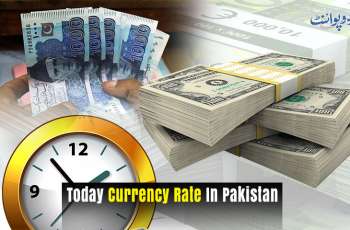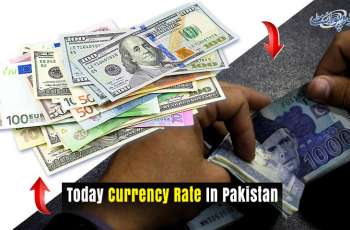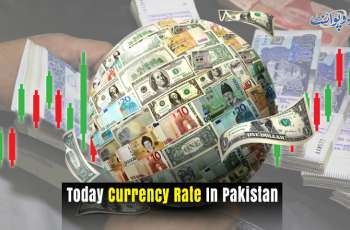HERAKLION (Pakistan Point News / Sputnik - 20th April, 2022) Greece is bracing for rising prices as the Ukrainian crisis continues to inflict damage on the global economy, disrupting supply chains and prompting global fuel and food prices to skyrocket.
On April 8, the European Union announced a fifth package of anti-Russian sanctions over Moscow's military operation in Ukraine, which included a ban on imports of coal and other solid fossil fuels, despite the Russian imports to the EU in 2021 amounting to about 45% of gas, 27% of crude oil and 46% of coal. The move has led to skyrocketing energy prices across Europe.
"The situation will soon be unbearable for many consumers, especially for those with lower income. Many people might need to cut back in basic expenses in order to balance their monthly family budget," Manolis Mpernidakis, a 44-year-old economist from Greece, told Sputnik.
The price increase will primarily affect the energy sector, given the current situation on the European energy market that has been exacerbated by EU sanctions against Russia, Mpernidakis explained.
"Energy is mostly affected by this increase and this is something that will continue and the situation will further deteriorate in the next few months, especially if additional sanctions are imposed on Russian gas. If the Europeans don't find a solution soon with the gas supply and they apply more sanctions to Russians or if the Russians 'switch off the gas valve,' then we are in a very serious situation," he added.
On March 8, the European Commission suggested developing a special plan to reduce the demand for Russian gas by two thirds as early as this year. The commission said that the so-called REPowerEU plan will seek to diversify gas supplies, speed up the roll-out of renewable sources, and replace gas in heating and power generation. EU Commission Vice President Frans Timmermans admitted that reducing the EU demand for Russian gas by two thirds will be "bloody hard," but not impossible.
"This will be the end for our profession, I think price of gas per liter will even pass the 2.50-2.70 euro ($2.7-2.9) and I think people will stop putting petrol in their cars, if such a scenario becomes a reality. This is a terrible scenario and I hope it won't happen," Stelios, the owner of a petrol station in the Greek city of Rethymno, told Sputnik.
Greeks are now trying to limit using their cars despite Easter season as they try to be mindful of their budget, he said.
"They don't fill them anymore. Now before Easter Holidays customers usually were filling up their cars as many were taking their families to their villages for holidays, but so far this is not happening and people are mostly filling up their cars with 10 or 20 euro just to use their vehicle for the absolutely necessary transportation," Stelios added.
On February 24, Russia launched a military operation in Ukraine after the breakaway republics of Donetsk and Luhansk appealed for help in defending themselves against Ukrainian provocations. In response to Russia's operation, Western countries have rolled out a comprehensive sanctions campaign against Moscow, which has resulted in a spike in fuel and food prices around the world and disrupted supply chains.
On Tuesday, the International Monetary Fund (IMF) warned that global inflation will remain high for longer than previously expected and reach 5.7% this year in advanced economies and 8.7% in developing markets, at least 2% higher than projected in January. At the same time, the IMF downgraded its forecast for economic growth in the euro area to 2.8% this year and to 2.3% in 2023, which is 1.1% lower than previously thought.



